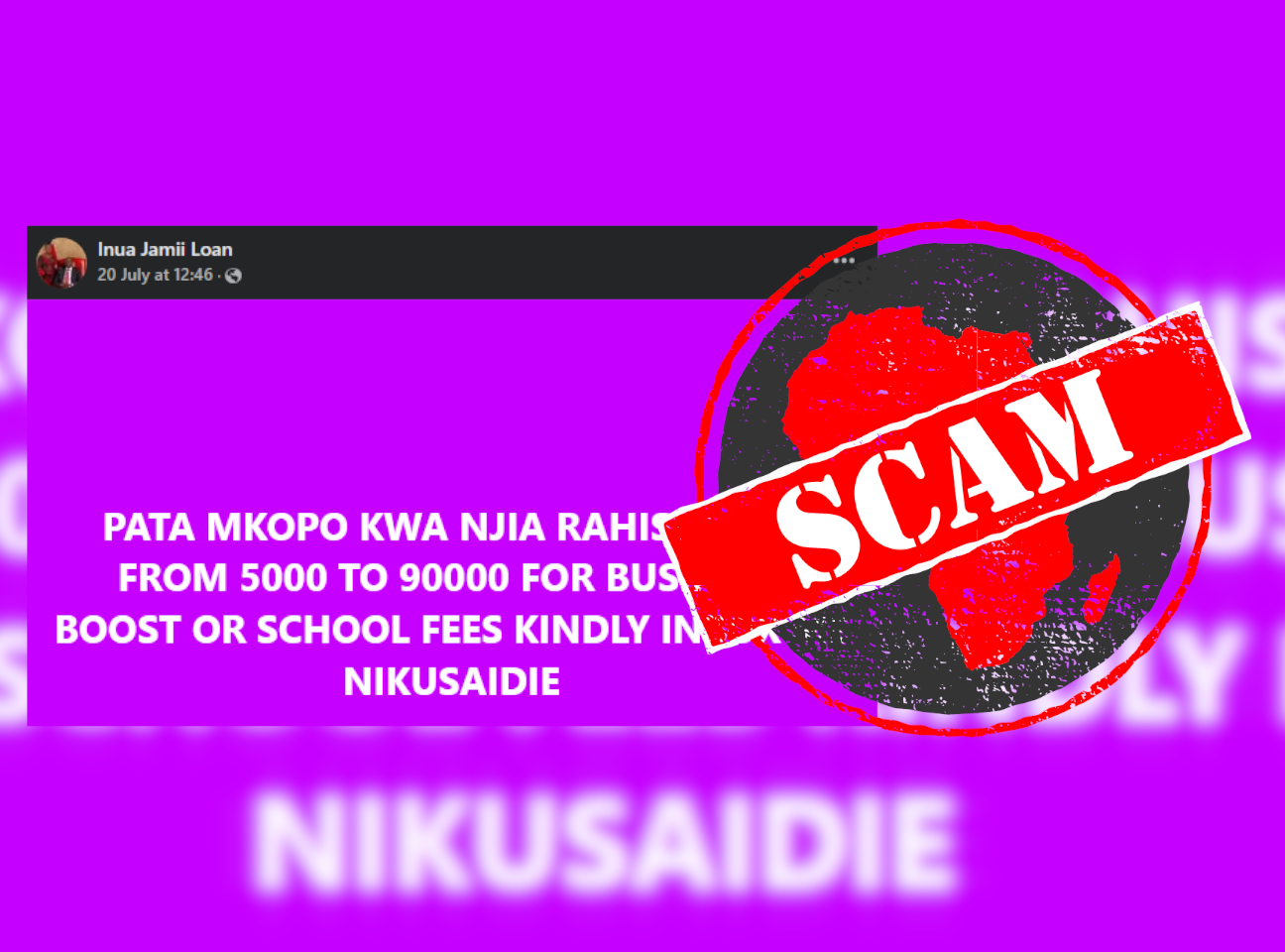IN SHORT: Kenya’s government programme, Inua Jamii, has often been targeted by fake Facebook accounts that claim to offer loans in its name. This Facebook account is another imposter and its posts should be ignored.
The account Inua Jamii Loan claims to offer loans to Kenyans on Facebook.
The account’s profile picture features Kenyan president William Ruto and his wife Rachel.
The name “Inua Jamii” refers to the Kenyan government programme that gives cash grants to poor and vulnerable people. It’s a Kiswahili phrase meaning “uplift the community”.
One of the posts on the account, dated 20 July 2023, reads: “PATA MKOPO KWA NJIA RAHISI SANA FROM 5000 TO 90000 FOR BUSINESS BOOST OR SCHOOL FEES KINDLY INBOX ME NIKUSAIDIE.”
This mix of English and Kiswahili loosely translates to: “Get a loan easily from KSh5,000 to KSh90,000 for business or for school fees. Kindly inbox me for assistance.”
The account’s offers have been reposted on multiple Facebook groups, each with thousands of members.
The Inua Jamii programme has often been targeted by fake Facebook accounts and pages that claim to offer loans to Kenyans. Is this another one? We checked.

Clues the account is a scam
The advert’s poor writing is the first sign that it’s a scam. An official government Facebook account wouldn’t issue an ad with random capitalisation, misspellings and missing punctuation marks.
The account also uses recycled screenshots of Facebook messages that have been used by scammers before and debunked by Africa Check. This is uncharacteristic of a government-run institution.
It is also suspicious that the account has made an effort to share its posts to different Facebook groups. Normally, interested users would be the ones to share a government post for the benefit of their friends and relatives.
The mix of English and Kiswahili makes the advert informal, also uncharacteristic of a page run by the government.
The Inua Jamii programme has said many times that it does not issue loans but rather gives out cash grants. So no such loan offers are posted on the programme’s official Facebook page.
Africa Check has flagged many other pages and accounts running similar scams, including here, here, here, here and here.
Read our guide on how to spot and protect yourself against online scams.
Republish our content for free
For publishers: what to do if your post is rated false
A fact-checker has rated your Facebook or Instagram post as “false”, “altered”, “partly false” or “missing context”. This could have serious consequences. What do you do?
Click on our guide for the steps you should follow.
Publishers guideAfrica Check teams up with Facebook
Africa Check is a partner in Meta's third-party fact-checking programme to help stop the spread of false information on social media.
The content we rate as “false” will be downgraded on Facebook and Instagram. This means fewer people will see it.
You can also help identify false information on Facebook. This guide explains how.




Add new comment